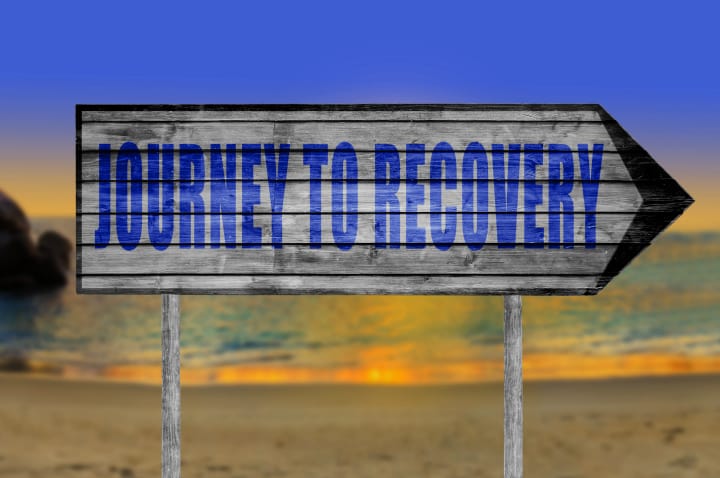Welcome to my annual Blog Hiatus! That means while I plan and prep, you get to hear from fresh new voices. This year I asked my guests to share their thoughts and experiences on one topic: Resilience. First up is a story of learning resilience when dealing with an injury. Shannon’s story is a great example of how sometimes we need to look past the issue at hand and find the lessons to be learned.- Pamela
There’s no way to put this lightly – injuries are devastating for athletes. For the record, if you workout, even just a few days a week, I’m referring to you too when I say athlete. Successful injury recovery requires physical and mental strength. It requires a whole lot of resilience.
I’m a runner. I’ve been running for the past 8 years or so. It’s only been the past 5 years that I’ve referred to myself as “a runner.” Now it’s as much a part of my identity as being a wife, a mom, a fitness lover, a fake blonde, and a woman.
Back in June 2017 I was out for one of my usual 4-mile runs. Around mile 2 I started to feel some discomfort in the side of my knee. I’m stubborn so I ignored it and pressed on. About a mile and a half later it turned into pain that I couldn’t ignore any longer so I limp-ran home.
A couple days later I figured that I’d had enough rest so I hit the road again. The pain came back by a half mile into my run. It wasn’t bad enough to stop me so I kept going. I continued this for about 6 weeks. The whole time I just kept hoping it would get better like when I pulled my quad or tweaked my shoulder. Unfortunately that wasn’t the case.
When you hit rock bottom…what’s next?
I remember my rock bottom run in early August. I was pushing my 3 year old in the jogging stroller while my 7 year old and 9 year old rode their bikes in front of me. I could only make it a mile that day, and it was a struggle. I came home and recorded an Instagram Story while on the verge of tears.
I was frustrated that I wasn’t healing despite trying to take some time to rest (I don’t do “rest” very well, it’s a character flaw). I was scared that I’d never be able to run again. I felt like I was losing part of my identity.
At that point a friend of mine reached out and encouraged me to go to the doctor. She was training for the Chicago Marathon and had knee issues as well. Her issues required physical therapy but she was well on her way to making a full recovery and still able to train. I didn’t know what else to do so I took her advice.
My doctor put me on a week of anti-inflammatory meds, gave me instructions for icing, suggested a knee brace, and sent me on my way. She wasn’t sure exactly what was causing my pain but felt fairly confident that it was a tendon or ligament issue. She told me to follow her advice for a month or so and then we could decide if physical therapy was warranted. I wanted nothing more than to run again so I took her advice and carried on.
A week later I slowly eased myself into running. As someone who was averaging 80-100 mile a month pre-injury I felt pretty sorry for myself when I could only do quarter mile intervals. But I didn’t let that hold me back. I allowed myself plenty of time between runs for recovery. Eventually I got up to running a mile without any pain. Then I got up to 2 miles. I’m happy to report that at the time of writing this, 3 months post-injury, I’ve gotten up to 3.5 miles straight with no pain!
Top Tips For Overcoming Injury
Dealing with this injury and all the mental and physical effects that came with it taught me a lot about how resilient I am. To help you I’m sharing my top 3 tips for overcoming an injury.
- Listen to your body. I know it can be hard, especially if you’re stubborn like me, but your body knows what it needs. Trust the process. Challenge your body, but don’t push it past that line. And while we’re at it – see the doctor if it’s warranted!
- Don’t let the setbacks go to your head. There will be setbacks. Unfortunately, the road to recovery is not a linear one. There are highs and lows. If you get stuck dwelling on lows then you’re not moving forward to that next high. Take time to acknowledge it, learn from it, and move on.
- Slow and steady wins the race. If you push yourself too hard too fast you’re at a huge risk for re-injury or delaying your progress. Patience is key here!
Resilience is defined as “an ability to recover from or adjust easily to misfortune or change.” A key quality of that is perseverance. I know that I’m resilient, and I relied on my perseverance to pull me through my injury.
Have you ever dealt with an injury? What was the key to your recovery?




